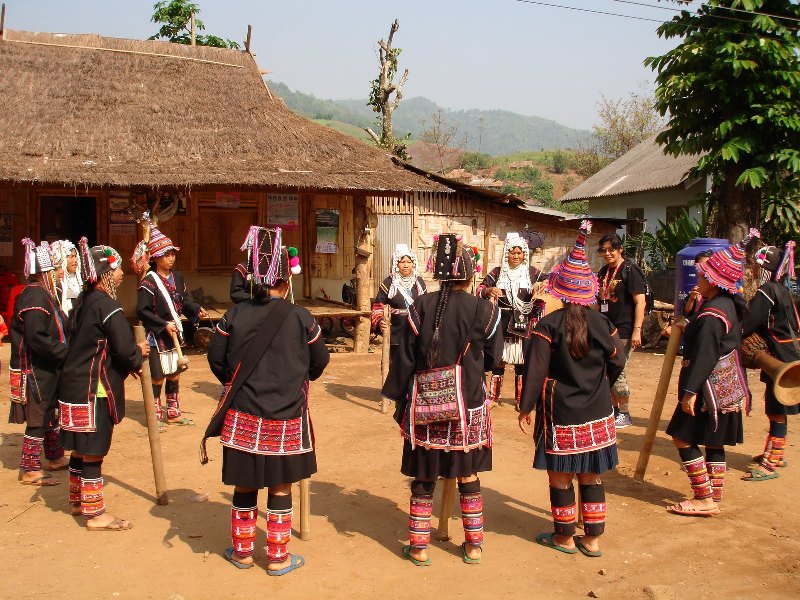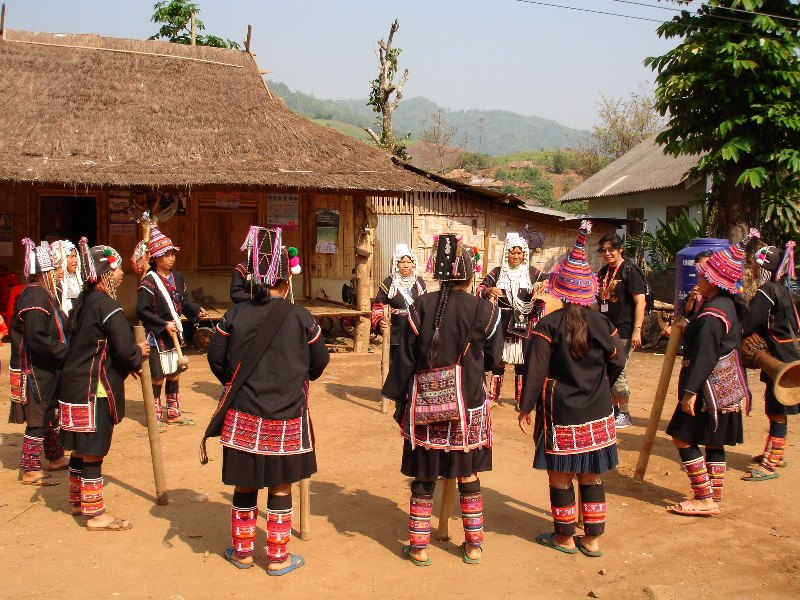Join us on a journey of discovery as we explore the captivating culture of the Lisu Hill Tribe in Thailand. Venture beyond the tourist attractions and bustling cities to uncover the hidden gems of this enchanting tribe. Immerse yourself in the rich traditions and way of life as you delve into the fascinating world of the Lisu people. From their unique cuisine to their vibrant festivals, prepare to be awed by the beauty and diversity of this lesser-known Thai community. Get ready to get lost in the charm of the Lisu Hill Tribe.
The Fascinating Life of the Lisu Hill Tribe in Thailand
Introduction to the Lisu Hill Tribe
Imagine living amidst a lush green landscape, surrounded by majestic mountains and cascading waterfalls. This is the reality for the Lisu Hill Tribe, an indigenous group that resides in the mountainous regions of northern Thailand. With their rich cultural heritage and deep-rooted traditions, the Lisu people have captured the fascination of travelers from all over the world. In this article, we will delve into the captivating life of the Lisu Hill Tribe and explore their history, lifestyle, and unique customs.
Historical Background of the Lisu Hill Tribe
The Lisu Hill Tribe traces its origins back to China, where they were an agricultural community that lived in the Yunnan Province. Over time, due to various socio-political factors, they migrated southwards and settled in the highlands of northern Thailand. Their journey was not an easy one, as they encountered numerous challenges and had to adapt to new environments. Despite these hardships, the Lisu people managed to preserve their distinct cultural identity and continue their way of life.
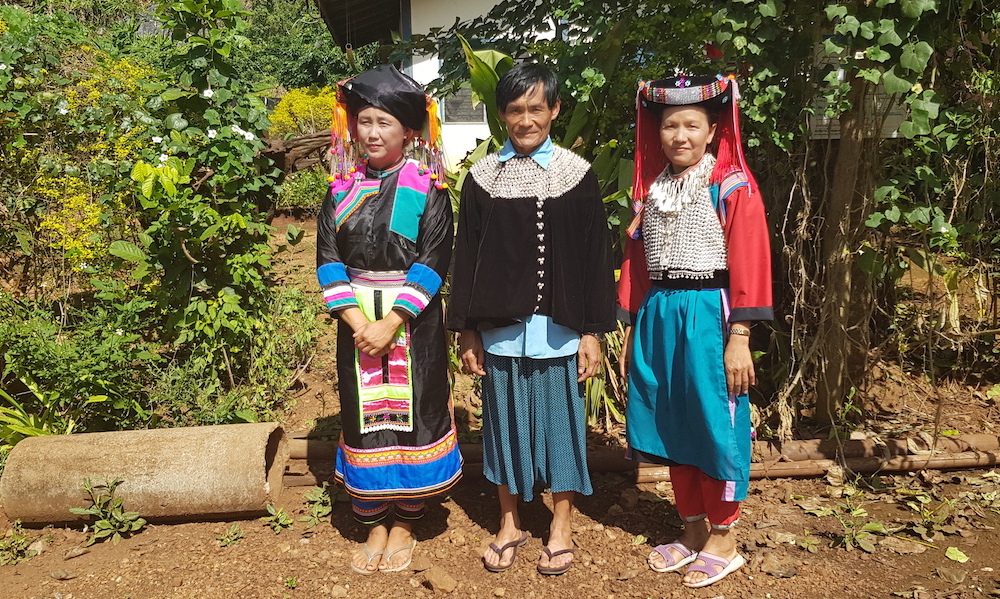
Geographical Distribution of the Lisu Hill Tribe
The Lisu Hill Tribe is scattered across the mountainous regions of northern Thailand, primarily in the provinces of Chiang Mai, Chiang Rai, Mae Hong Son, and Phrae. These areas offer a breathtaking backdrop for the Lisu people, with their mist-covered peaks, terraced fields, and dense forests. The rugged terrain has not only shaped their lifestyle but also provided them with a deep connection to nature.
Traditional Clothing and Accessories of the Lisu Hill Tribe
One of the most striking aspects of the Lisu Hill Tribe’s culture is their vibrant traditional clothing. Both men and women adorn themselves in intricate garments, which are adorned with bold colors and elaborate embroidery. Women often wear a long-sleeved jacket called a “Huajai” with a short, pleated skirt known as a “Soap”, while men opt for a simpler attire comprising a shirt and trousers. Additionally, both genders wear silver jewelry, such as earrings, bracelets, and necklaces, to complement their outfits and signify their cultural identity.
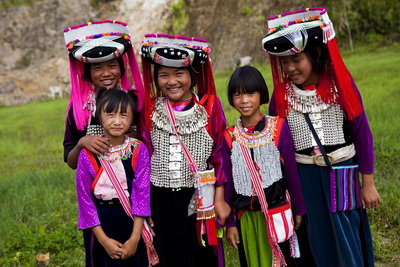
Language and Communication of the Lisu Hill Tribe
The Lisu Hill Tribe has its unique language called “Lisu,” which is a Tibeto-Burman language. It is quite distinct from the Thai language spoken by the wider population in Thailand. Despite the linguistic differences, many Lisu people are bilingual and can converse in Thai as well. Traditional Lisu scripts are no longer in common use, making oral communication the primary mode of interaction within the community. However, efforts are being made to preserve and promote the traditional Lisu script to ensure it is not lost to future generations.
Religious Beliefs and Practices of the Lisu Hill Tribe
The religious beliefs of the Lisu Hill Tribe are deeply rooted in animism and ancestor worship. They believe in a spiritual world inhabited by powerful spirits and deities who possess the ability to influence their daily lives. In their religious practices, rituals and ceremonies play a significant role. For instance, the Lisu people often construct spirit houses, where they make offerings and perform ceremonies to appease the spirits and seek their blessings. Despite the encroachment of Buddhism and Christianity in the region, the Lisu people have managed to maintain their traditional spiritual practices.
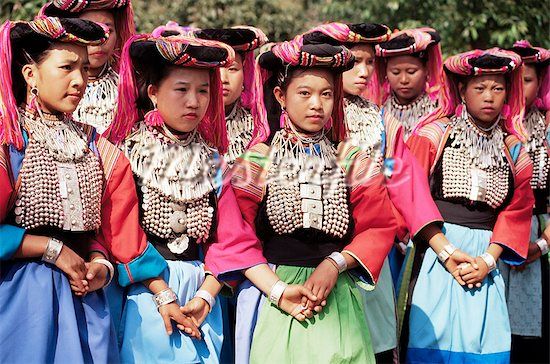
Social Structure and Family Life in the Lisu Hill Tribe
The Lisu Hill Tribe follows a patriarchal social structure, with the eldest male assuming the role of the family’s head. The Lisu people value the concept of extended family and kinship, and it is common for several generations to live under one roof. Family ties are of utmost importance, and the Lisu people exhibit a strong sense of collective responsibility and loyalty towards their kin. In terms of marriage customs, arranged marriages were previously common, but with changing times, love marriages have become more prevalent.
Economic Activities of the Lisu Hill Tribe
Traditionally, the Lisu Hill Tribe relied on subsistence farming as their primary economic activity. They cultivated crops such as rice, corn, and vegetables on the terraced fields along the mountain slopes. Additionally, they practiced swidden or slash-and-burn agriculture, rotating their cultivation areas to allow the land to recover its fertility. However, with the growth of tourism in the region, many Lisu people have embraced alternative livelihoods such as handicraft production, running guesthouses, and engaging in cultural tourism activities.
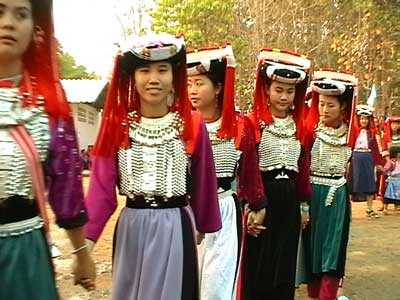
Cultural Festivals and Celebrations of the Lisu Hill Tribe
The Lisu Hill Tribe celebrates several colorful and lively festivals throughout the year, providing outsiders with a glimpse into their rich cultural heritage. One of the most prominent festivals is the “New Year Festival,” which marks the beginning of the agricultural cycle and brings the Lisu community together in joyful celebration. During this festival, villagers adorn themselves in their traditional attire, perform traditional dances, and engage in various cultural activities. Another significant celebration is the “Huajai Sawan Festival,” which is dedicated to paying homage to the ancestors and seeking their blessings for a bountiful harvest.
Sustainable Tourism and the Lisu Hill Tribe
The growing interest in indigenous cultures has led to an increase in tourism to the Lisu Hill Tribe’s region. However, it is vital to approach this form of tourism in a sustainable and respectful manner. Responsible tourism organizations work closely with the Lisu community to develop initiatives that promote cultural preservation, environmental conservation, and economic empowerment. By engaging in homestays, cultural tours, and purchasing locally-made handicrafts, visitors can contribute to the well-being of the Lisu Hill Tribe while experiencing their unique way of life.
In conclusion, the Lisu Hill Tribe’s fascinating life in Thailand captures the essence of an enchanting culture. Their rich heritage, vibrant clothing, unique language, and harmonious relationship with nature make the Lisu people a truly captivating community. As we explore their history, traditions, and way of life, we must remember the importance of responsible tourism and the need to support the preservation and development of their cultural legacy.
